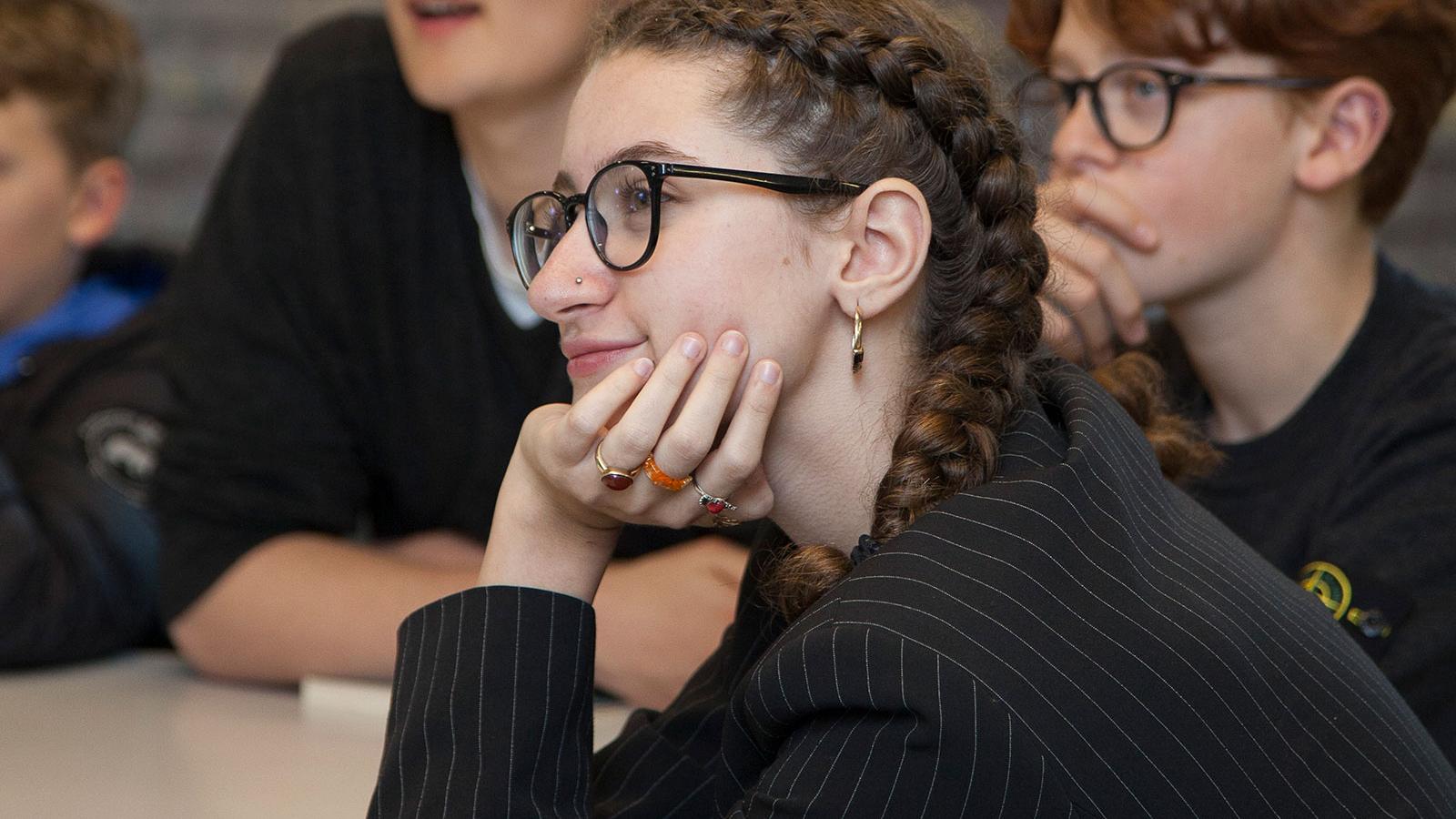Bedales offers the following academic societies:
Classics Society
The society meets once a term, with two senior talks and one junior talk during the course of the year, featuring outside speakers from other schools and universities, as well as Bedales staff presenting illustrated lectures. Recent talks have been on topics including “Homer’s Audience”, “Greek Drama on the Modern Stage” and “The Wine Trade in the Ancient World”. There are also visits to external plays and talks, and the infamous annual Latin and Greek Reading Competition.
Senior Literary Society
This society for the sixth form meets twice per term and features student-led discussions of a book chosen at the beginning of the term.
Junior Literary Society
Meeting at least once a term, this society for Blocks 3, 4 and 5 features student-led discussions of a book chosen at the beginning of the term.
Poetry Society
Meetings, once or twice a term, fall into three categories for the Poetry Society: evening meetings when the society gathers for members to share poems - their own or others’ – and to talk about them, if they want; suppers and chats with visiting poets (Douglas Dunn in 2011; Carol Ann Duffy in 2012); and other events – the poetry evening in the Sotherington Barn each May and the annual Midsummer Breakfast at the Poet’s Stone in May/June.
Shakespeare Society
The student in charge of the Shakespeare Society, in consultation with the members, chooses a Shakespeare play termly and casts the parts. The play is read aloud at one sitting and then pizza and ice-cream is eaten, having some discussions about Shakespeare along the way.
French Café
Meeting three or four times a term, French Café is for Block 5 upwards and involves speaking, games, insight into French culture, singing, literature, and film trailers.
Green Ribbon Club
This society for the Sixth Form meets three to four times a term during the Autumn and Spring terms and features short lectures and discussions on a wide range of historical topics including Philosophy of History. Previous speakers have included Jeremy Paxman and General Sir Nick Parker.
Sixth Form Mathematics Society
Meeting three or four times a term during the Autumn and Spring terms, the Sixth Form Mathematics Society features student-driven discussions about mathematically-related topics. Each student brings a piece of information to discuss. Occasionally, there is an outside speaker, a film is shown or there is an interdisciplinary debate (eg. Philosophy of Maths).
Junior Mathematics Society
The Junior Mathematics Society meets weekly, although not every term, and comprises discussions, number puzzles, problem-solving and UK Maths Challenge questions for Block 3, 4 and 5.
Philosophy Society
Meeting twice per term and open to everyone, the Philosophy Society features talks by internal and external speakers and debates etc.
Global Awareness Society
The Global Awareness Society meets regularly to discuss issues of global interest and to devise ways to 'burst the Bedales bubble'. It works as an idea incubator and think tank, identifying potential speakers and stories to share with the school in a variety of innovative ways. Regular lunchtime meetings and a smaller steering group convenes in an evening slot.
Middle East Society
Student-initiated discussions about the Middle East, its history, diverse cultures and politics form the basis of the Middle East Society which meets at least termly. Whenever possible there are visiting speakers, such as (in 2012) the British Ambassador to Libya and (in 2013) Dr Noel Brehony, an expert on Yemen.
Medical Ethics Society
The Medical Ethics Society meets fortnightly over lunch. We listen to the radio 4 programme, ‘Inside the Ethics Committee’, during which the students think about how the ethical dilemma fits into the 4 ethical frameworks; autonomy, beneficence, non-malificence and justice. The programme is stopped before the experts make their decision so that we can discuss the dilemma and think about what should be done. We then listen to what was actually done and again discuss why the decision was made and whether we made the same decision, however there is often disagreement between the experts. Some weeks we may discuss a current ethical issue in the news that the students have heard about and bring to the group. Although initially set up for prospective medics and nurses, the group has expanded to include interested biologists and occasionally students who do not study biology. It is mainly directed at sixth formers.

